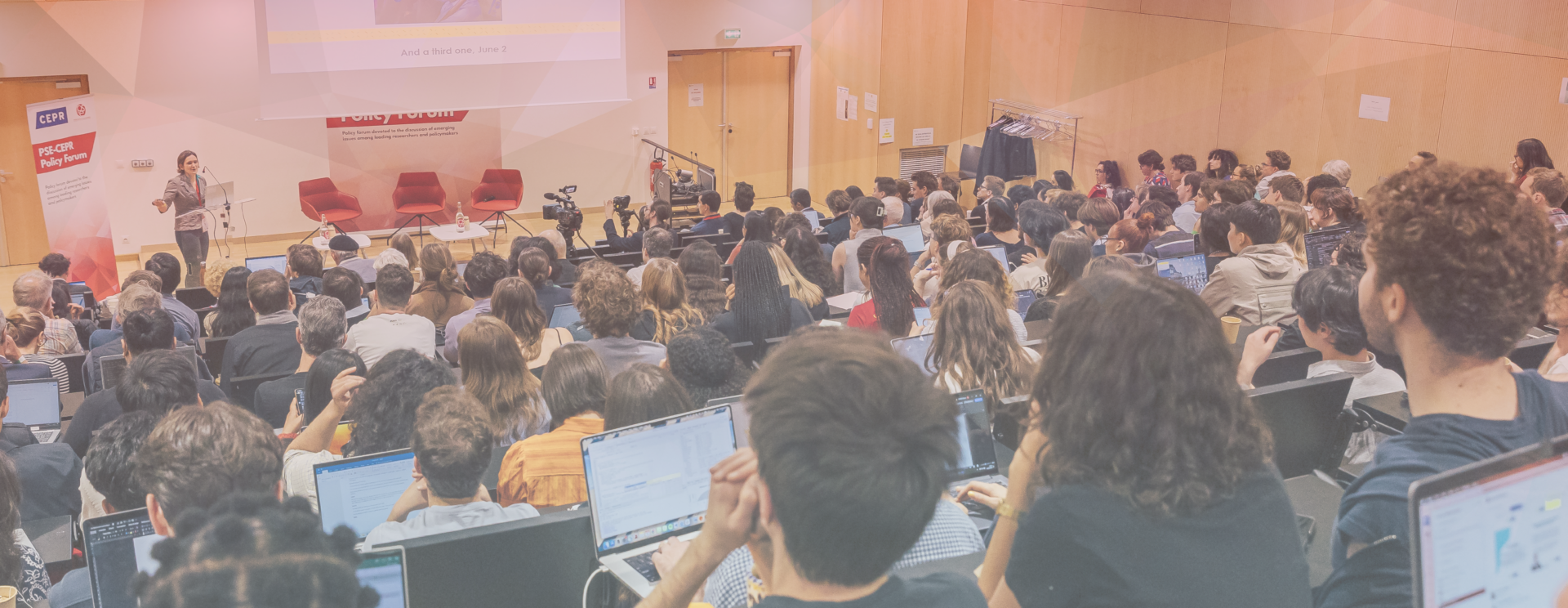PSE-CEPR Policy Forum 2025 : Presentations PhD students selected by the CEPR call for papers
This page provides an overview of the PhD student presentations featured at the PSE-CEPR Policy Forum 2025.
Daily program
- Evolving Skill Demands in the Age of AI: Evidence from Europe
David Marguerit (Luxembourg Institute of Socio-Economic Research) - Do AI skills improve employment chances? Evidence from a field experiment
Teo Firpo (Humboldt-Universität zu Berlin) - Artificial Intelligence in Coaching: Improving Productivity and Communication Quality for Call Center Agents
Pelin Özgül (Maastricht University) - Automation, Firm size and Skill Groups
Julian Tiedtke (Scuola Superiore Sant’Anna di Pisa) - AI in Demand: How Expertise Shapes the (Early) Impact on Workers
Marc Justin Schmidt (TU Dortmund)
- The Deadweight Loss of Short-Time Work
Nathan Vieira (Aix-Marseille Université) - How does Division of Labor Affect Team Productivity? Evidence from GitHub
Jinci Liu (Institute for International Economic Studies, Stockholm University) - Unpacking Skill Supply and Wages
Joseph Richardson (Lancaster University) - The Timing of Taxes: Labor Supply Responses over the Year
Luisa Opitz (Bocconi University) - Powering Digital Affordability: Can Better Electricity Infrastructure Make Mobile Services Affordable in Africa?
Hossein Tohidimehr (IHEID)
- Weathering Labor Market Shocks: Droughts and gendered employment in India
Deepakshi Singh (University of Groningen) - Demographic Winter, Economic Structure and Productivity in Japan
Mathilde Esposito (Aix-Marseille School of Economics) - No Kid Is an Island: Intergenerational Mobility and Peer Effects
Pietro Campa (Université de Genève) - Displacement, Labor Mobility and Transferable Tasks
Florian Hack (Humboldt-Universität zu Berlin)
